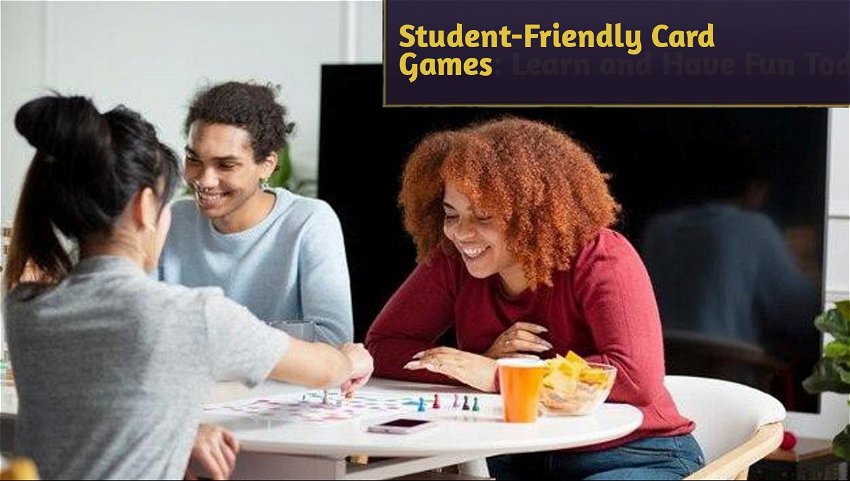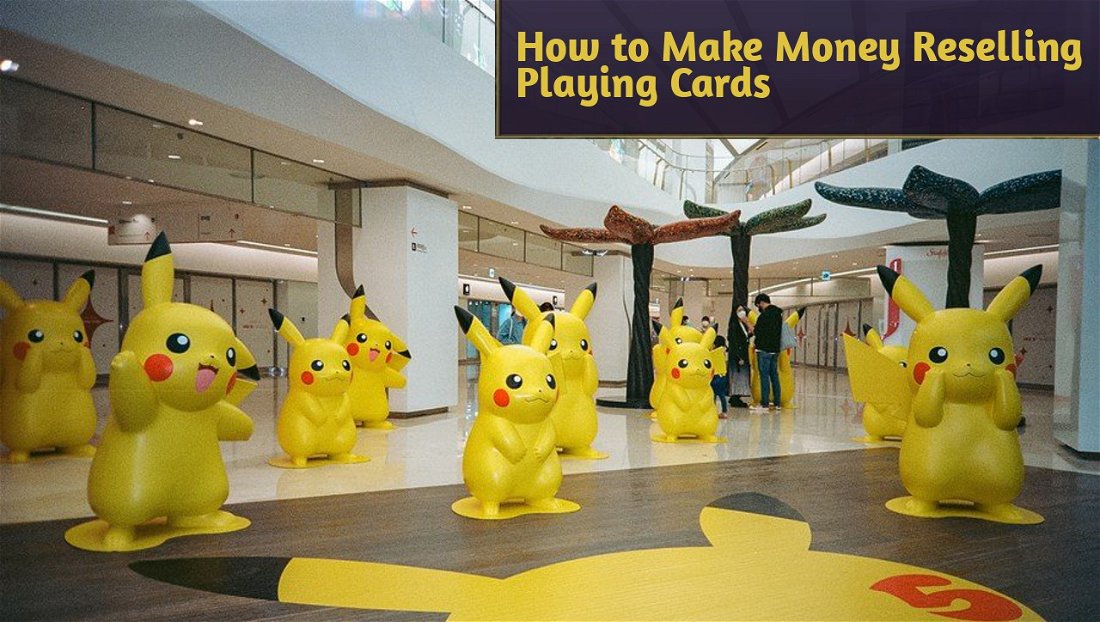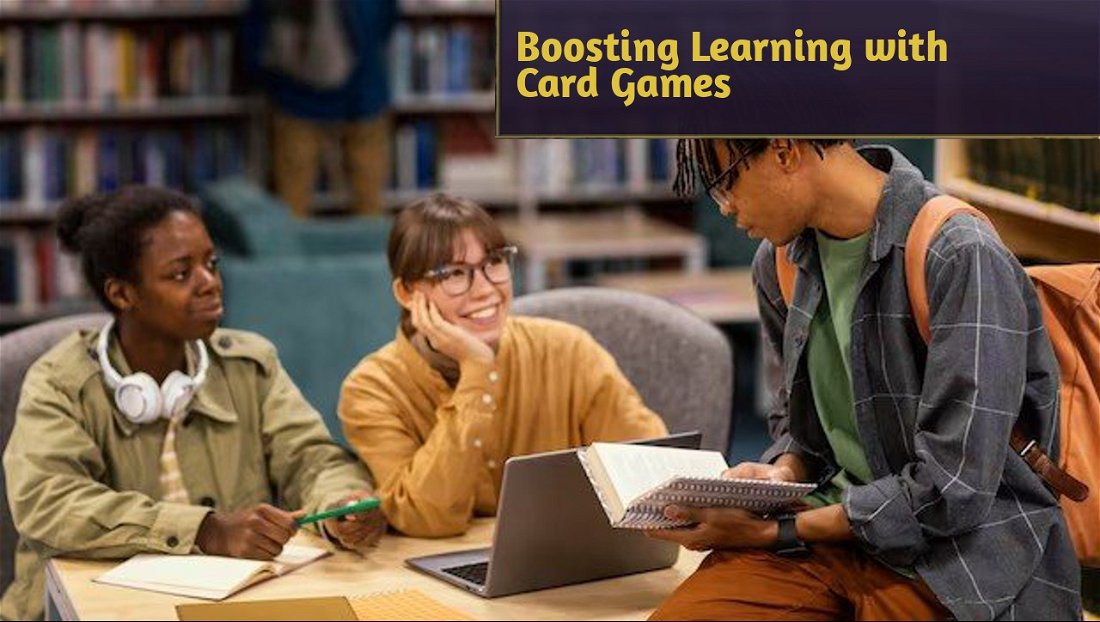A game of cards isn't just a way to pass the time. Indeed, for many students, it's an enjoyable and engaging method to learn and consolidate knowledge. Whether it's in a classroom or a social setting, card games can serve as a powerful educational tool. They offer unique opportunities for practicing critical thinking skills while encouraging social interaction. In the same vein, they can even be an integral part of a custom assignment writing service. This article delves into the world of student-friendly card games, the educational benefits they offer, and how to incorporate them into learning.
Learning Through Play: The Power of Card Games
Card games are not just for leisure anymore. They have evolved into a powerful medium for learning through play. In the world of education, learning through play is a pedagogical approach that incorporates games into the teaching process. Card games, in particular, provide an interactive platform that can make learning more engaging and enjoyable.
Gamified learning, as it's often called, has been recognized for its effectiveness in stimulating cognitive development. Card games can help students to understand complex concepts, develop problem-solving skills, and enhance their memory. This approach to learning can be particularly beneficial for students who struggle with traditional teaching methods. It offers a hands-on, active learning experience that can cater to different learning styles.
In the context of a custom assignment writing service, card games can be used to assist students in understanding various topics. For example, a game of 'Vocabulary Cards' can help improve a student’s language skills, making it easier for them to articulate their thoughts and ideas when writing assignments. Hence, card games serve as an innovative educational tool that combines fun and learning.
Card Games That Enhance Critical Thinking
There are countless card games that can help students enhance their critical thinking skills. Games such as 'Clue', 'Uno', and 'Set' require players to employ strategic thinking, pattern recognition, and decision-making skills. They promote a sense of competition, requiring the player to constantly evaluate their situation and make decisions accordingly.
'Set' is a game that stimulates the brain's ability to identify patterns. It requires players to find sets of three cards where each of the card's features, such as color, shape, or number, either all match or all differ. This game challenges students to think quickly and logically, enhancing their cognitive skills.
Similarly, 'Uno' is a classic card game that encourages strategic thinking. Players must think ahead and plan their moves carefully to win the game. It also promotes the development of social skills such as communication and sportsmanship. By playing these games, students can enhance their critical thinking skills in a fun and engaging way.
Social and Educational Benefits of Card Games
Beyond enhancing critical thinking, card games also offer numerous social and educational benefits. They foster a sense of community and camaraderie among players, which can help improve students' interpersonal skills. In a classroom setting, card games can serve as an icebreaker, helping students to interact and communicate more effectively with their peers.
Card games also promote patience and resilience. Most games require players to wait their turn and handle the ups and downs of the game, teaching them the value of patience. Furthermore, losing a game can be a lesson in resilience, encouraging students to try again despite setbacks.
In terms of educational benefits, card games can help improve concentration, memory, and numerical skills. Games that involve numbers or memory skills can enhance mental arithmetic and recall abilities. Moreover, they can assist in developing a student's understanding of probability and strategy, which are crucial aspects of mathematical learning.
Creating a Card Game Study Group
A card game study group can be a great way to incorporate card games into learning. It provides a platform for students to engage in games that reinforce classroom learning and stimulate cognitive development. Creating a card game study group can be as simple as gathering a group of interested students, selecting suitable games, and setting a regular schedule for meetings.
To maximize the benefits of the study group, it's crucial to choose games that align with the curriculum. For example, a game like 'Math Fluxx' can be an excellent choice for a group studying mathematics. It's a game that requires players to use numbers and mathematical operations to achieve a goal, reinforcing their mathematical knowledge in a fun and engaging way.
It's also important to create a conducive environment for the study group. A quiet, comfortable space with a table and enough seating is essential. Additionally, fostering a friendly, respectful atmosphere will encourage participation and ensure that everyone feels included.
Strategies for Incorporating Card Games into Learning
Incorporating card games into learning requires a strategic approach. One effective method is to integrate games into lesson plans. This can be done by using card games as a warm-up activity to introduce a new topic or as a review tool to reinforce learning. For instance, a game of 'Fraction War' can be an enjoyable way to practice comparing fractions in a mathematics class.
Another strategy is to use card games as a reward or break activity. This can help to maintain student engagement and motivation during long study sessions. For instance, a quick game of 'Uno' can provide a much-needed break from a rigorous study schedule.
Lastly, card games can serve as an assessment tool in a classroom setting. Teachers can observe student interactions and strategies during the game to assess their understanding of the subject matter. This can provide valuable insights into a student's learning progress and areas for improvement.
In conclusion, student-friendly card games offer a unique and effective approach to learning. They provide an engaging platform for developing critical thinking skills, improving social interaction, and enhancing academic knowledge. Whether it's in a classroom or as part of a custom assignment writing service, card games can undoubtedly make learning a more enjoyable and rewarding experience.










— Comments 0
, Reactions 1
Be the first to comment